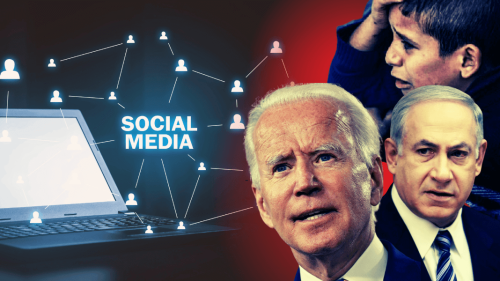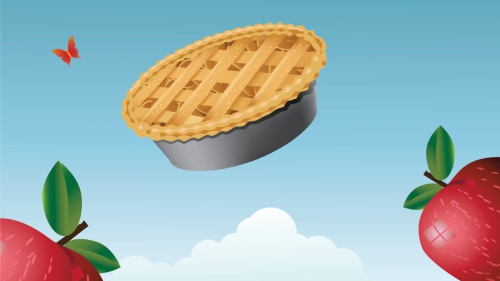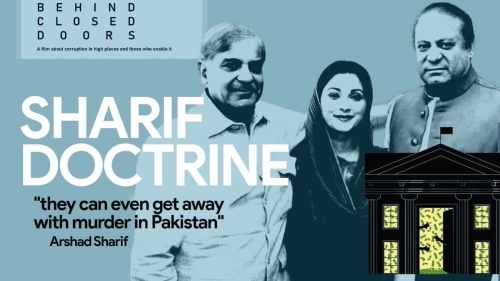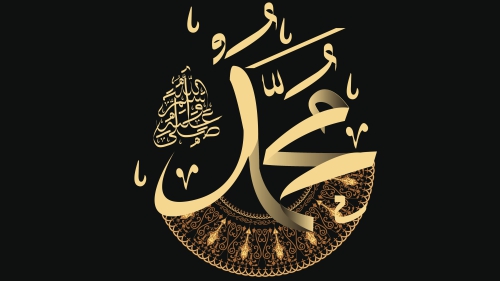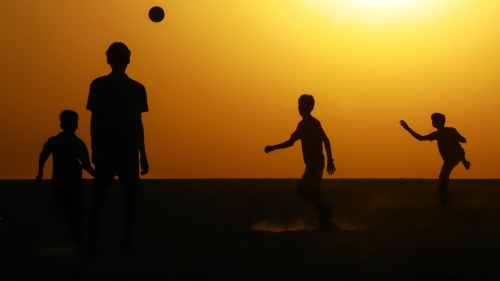Muslim ideals and a non-Muslim politician
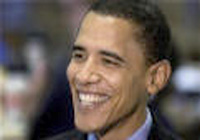 |
On July 27, Democratic U.S. Senate candidate from Illinois Barack Obama gave one of the most inspiring speeches of the Democratic National Convention recently held in Boston. I dare say that the speech was more inspiring than that of the Democratic Presidential Nominee, Massachusetts Senator John Kerry. His speech began by expressing his deep gratitude for the privilege of addressing the DNC. His assent to the spotlight of the 2004 DNC is truly remarkable, and Obama told the gathered faithful that, "Tonight is a particular honor for me because, let's face it, my presence on this stage is pretty unlikely."
Yet, his rise from "a skinny kid with a funny name" to president of the Harvard Law Review to Illinois U.S. Senate candidate for the Democratic Party was not the most remarkable aspect of his speech. It was the ideals he espoused, the principles he advocated. They were Islamic principles and Muslim ideals, despite the fact that the only thing remotely Islamic about Barack Obama is his first name, which comes from the Arabic barakah, or "blessing."
He spoke about the premise of our nation "summed up in a declaration made over two hundred years ago, 'We hold these truths to be self-evident, that all men are created equal. That they are endowed by their Creator with certain inalienable rights. That among these are life, liberty and the pursuit of happiness.'" He spoke about how America can do better: better by preventing the bleeding of jobs overseas; better by providing healthcare to those who can not afford it; better by encouraging personal responsibility on the part of American citizens but still making sure everyone in America has a fair chance at getting ahead.
The most basic premise of his speech is that, as he most eloquently put it: "If there's a child on the south side of Chicago who can't read, that matters to me, even if it's not my child. If there's a senior citizen somewhere who can't pay for her prescription and has to choose between medicine and the rent, that makes my life poorer, even if it's not my grandmother. If there's an Arab American family being rounded up without benefit of an attorney or due process, that threatens my civil liberties. It's that fundamental belief-I am my brother's keeper, I am my sisters' keeper-that makes this country work. It's what allows us to pursue our individual dreams, yet still come together as a single American family. 'E pluribus Unum.' Out of many, one."
I am my brother's and my sister's keeper. Barack Obama might as well have quoted this verse from the Qur'an: "And serve God and do not associate any thing with Him; And be good to parents, to the near of kin, orphans, the needy, the neighbor of (your) kin, the alien neighbor, the companion in a journey, the wayfarer, and those whom your right hands possess; surely God does not love him who is proud, boastful" (4:36). That "child on the South Side of Chicago who can't read," that "senior citizen somewhere who can't pay for her prescription and has to choose between medicine and the rent," they are the "neighbors" about which the Qur'an speaks. If we neglect these fellow Americans, then we abandon the command of God to treat them kindly. In fact, God has included in our wealth sustenance for those who are less fortunate: "And in their wealth and possessions is the right of the needy and deprived" (51:19) As Muslims, especially American Muslims, we can never forget this.
"In the end," Barack Obama concluded, "that is God's greatest gift to us, the bedrock of this nation; the belief in things not seen; the belief that there are better days ahead. I believe we can give our middle class relief and provide working families with a road to opportunity. I believe we can provide jobs to the jobless, homes to the homeless, and reclaim young people in cities across America from violence and despair. I believe that as we stand on the crossroads of history, we can make the right choices, and meet the challenges that face us." These ideals are Muslim ones, spoken most eloquently by a non-Muslim politician. This struggle is our struggle, and as Muslim Americans it is our duty to help make this country better for all. We simply can not shirk our responsibility. We simply can not.
Hesham A. Hassaballa is a Chicago physician and writer. He is author of "Why I Love the Ten Commandments," published in the book Taking Back Islam: American Muslims Reclaim Their Faith (Rodale Press), winner of the prestigious Wilbur Award for 2003 Best Religion Book of the Year by the Religion Communicators Council.








